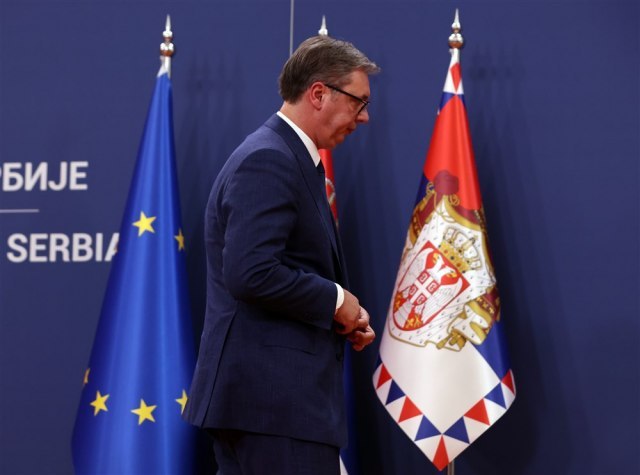Serbia: We have nine Kosovo derecognition notifications
Serbia has notes of nine countries that have changed their decision to recognize the so-called Kosovo, said the head of Serbian diplomacy, Ivica Dacic.
Wednesday, 02.11.2022.
13:30

Serbia: We have nine Kosovo derecognition notifications
According to him, Serbia is ready to disclose them as soon as the other party violates its obligations from the Washington Agreement."We adhered to the Washington Agreement and the moratorium, but Pristina violated it. Of the 193 UN members, Pristina can count on a maximum of 83 votes, which means that we have a majority in the General Assembly," he said.
"We will continue with such a policy. If Kosovo's request for membership in the Council of Europe enters the procedure, you heard that President Vučić also announced that we will publish notes on the withdrawal of recognition," said the Minister of Foreign Affairs.
Former diplomat Zoran Milivojević assesses that it is expedient for Serbia's position to activate the recognition campaign.
"It is clear that the number of countries that confirm Kosovo's statehood is changing. And this is in our favor. The scope of our campaign is huge and can be seen in at least three segments. First of all, it is important because of the voting itself in international organizations, starting with the UN General Assembly The balance of power is such that Kosovo cannot even get observer status, as Palestine has, because it does not even have a majority, and it is miles away from two-thirds. The number of countries that do not vote for Kosovo in other international organizations has also increased, so they have even less chance of getting into UNESCO, Interpol, OSCE. Only where the West dominates, Pristina has a chance to push for membership, and such is the case in the Council of Europe. Obviously, they have a two-thirds majority," Milivojević explains.
Apart from the vote, Milivojević notes that another effect of recognition is visible in the change in the international climate, so Serbia's arguments are heard more strongly.
"The increase in the number of countries that do not recognize Kosovo's independence certainly strengthens the position of Serbia, which persistently and principledly refers to international law. It also highlights the justification of the position that a solution for Kosovo should be sought through negotiations, dialogue and compromise, and there are less and less chances to impose a solution. The development of the situation over the past 14 years has unequivocally shown that Kosovo as a project did not succeed as many had hoped," concludes Milivojević.
Slobodan Zečević, a scientific advisor at the Institute for European Studies, believes that stopping the wave of recognition and the performance in changing the attitude of the states that recognized it certainly changed Serbia's position. He reminds that Prishtina, apart from a two-thirds majority in the UN General Assembly, also needs the consent of the Security Council, whereas the Albanians have neither.
"First of all, in the UN General Assembly, Serbia's position is changed in the sense that the majority of UN members do not recognize Kosovo. This has a moral force. At the same time, it strengthens our position diplomatically in terms of the argument when we say that the majority of countries in the world did not recognize Kosovo. However, on the ground and with regard to our people in Kosovo and Metohija, and the difficulties and problems they face, we do not gain much, because the Albanians hold Kosovo, they agree with the West on the steps to be taken, their institutions work in Kosovo. Our institutions have not come to life, the Community of Serbian Municipalities has not been formed. Therefore, diplomatically, it has an effect, but not on the ground, because those countries that derecognized Kosovo have no influence on the ground," explains Zečević.











































Komentari 2
Pogledaj komentare